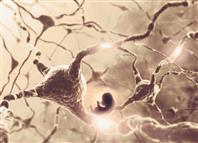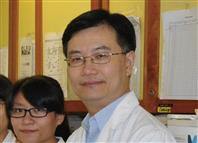Many advertisements for baby products claim to improve your offspring’s bowel movement. Marketing hype aside, proper excretion is crucial for health, in particular, that of infants. In fact a newborn who does not excrete meconium within 24 hours of birth is cause for alarm. And if the situation persists for a week or two, the child is likely to be suffering from congenital megacolon, a condition in which the large intestine is blocked due to improper muscle movement in the bowel. Waste builds up behind the blockage requiries immediate surgery. The disorder affects one in a thousand infants and roughly four times more often in boys than in girls.
Prof. Chan Wood-yee of the School of Biomedical Sciences at CUHK explained that congenital megacolon has different causes and one of them is problem with the nerves in a part of the bowel. ‘The condition already exists in the embryo,’ he said. ‘During growth, embryonic cells move to new locations. If cells that will turn into nerves in the bowel fail to reach their proper location or if they do but lose their function due to unfavourable growth conditions, the infant’s intestine will not be able to move due to the absence of nerves that push material through.’
Professor Chan is an expert in developmental biology, specializing in embryonic development, in particular its relation to congenital diseases. He takes a special interest in the nervous system which still has many unsolved mysteries. He observed that many nerve cells come from the central nervous system (CNS) and are heavily influenced by its development. The embryo’s undeveloped CNS takes the rudimentary form of a neural tube, from which eventually many nerve cells required by the body leave for their respective destinations. This is the time when problems arise if they do.
One of them, as described above, is when nerve cells fail to reach their destinations. Professor Chan remarked, ‘Some cells can’t even leave home. This is a problem with formation. Some leave home and lose their way or get into an accident along the way and end up somewhere else, such as nerve cells in the bowel ending up in the heart. This is a problem with migration.’
But even nerve cells that manage to arrive at their destinations face the problem of suitability of environment for growth which is directly related to the mother’s body and affected by the larger environment in which she finds herself. For instance, heavy pollution would hamper their growth or cause them to mutate and malform. In general, when there are problems with embryonic nerve cells, the embryo dies in the worst case scenario, and even if it doesn’t, the child will be afflicted with congenital disorders.
Conducting an in vitro experiment on embryonic cells is difficult. Professor Chan has been using mice in his studies. He devised a technology which allows researchers to extract a mouse embryo and cultivate it for two or three days outside the mother’s body. Of the 19 days of a mouse’s pregnancy, organ formation takes place on five or six. The rest of the time is devoted to the development and strengthening of functions. Therefore these five or six days are critical for conducting the in vitro experiment.
Scientific research is a long process requiring a lot of patience. By confirming that the problem is caused by intestines lacking necessary nerve cells or the latter failing to function properly, Professor Chan said he had made the first step. He added though that nerve cells are not the only reasons for problems of the bowel. His next step is to identify the relationship between the two and ultimately to find a cure, such as by transplanting normal cells. He said, ‘Developmental biology belongs to basic biological studies, and as such shares the same aims as medicine, and that is to find cures. The only difference is that doctors deal with phenomena happening in life, whereas developmental biologists study life’s beginnings.’ 



































































































































































Social Bookmarks